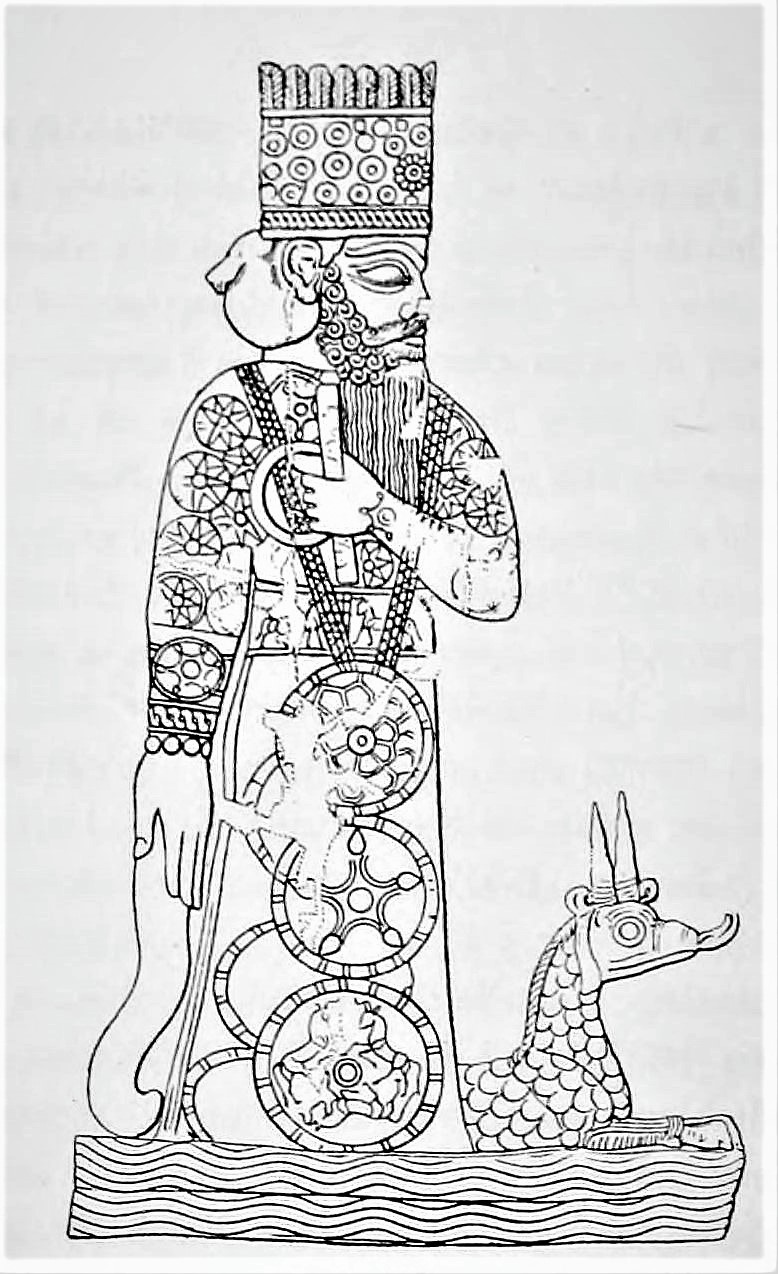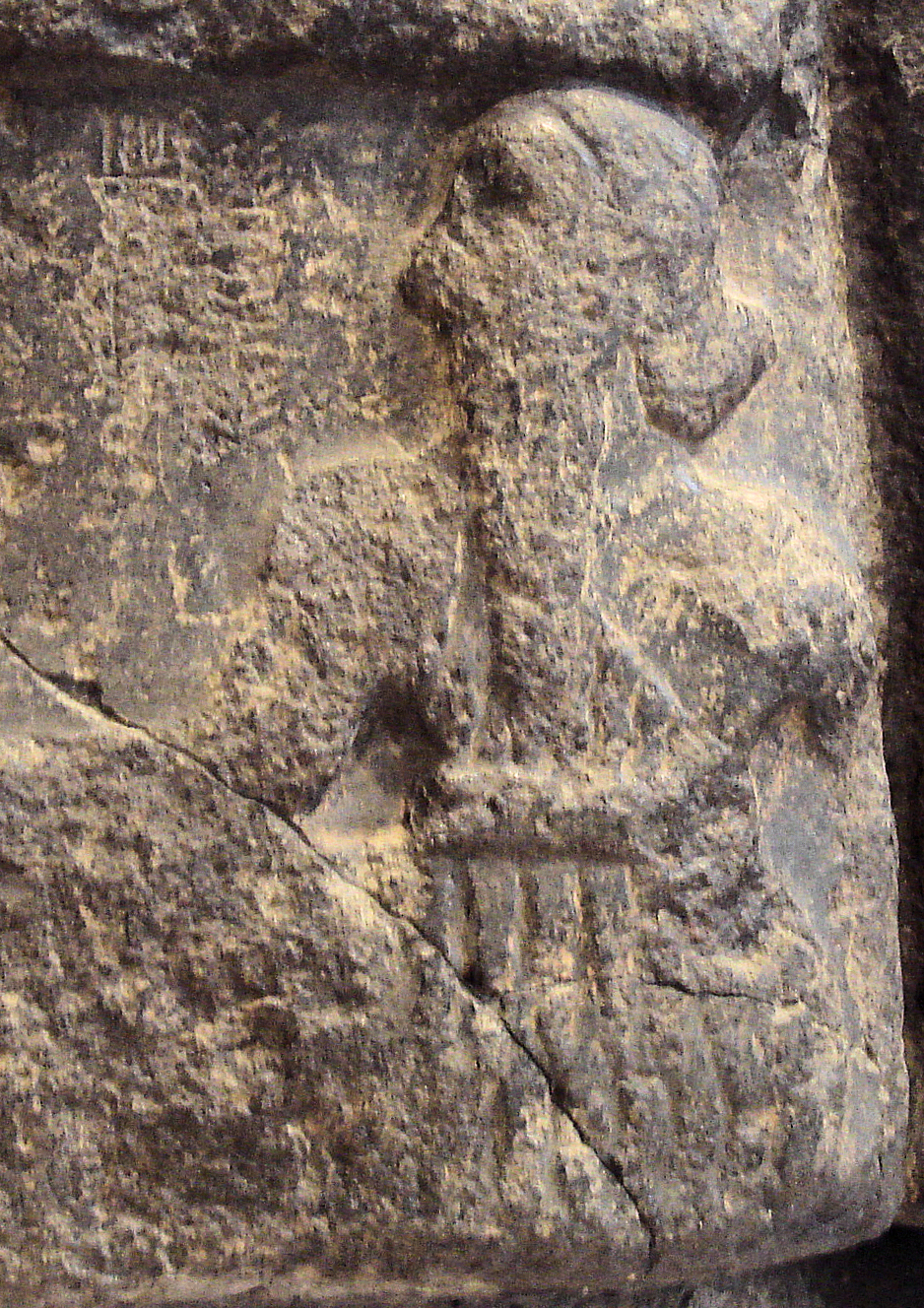|
Qasimism
Qasimism () is an Iraqi nationalist ideology based on the thoughts and policies of Abd al-Karim Qasim, who ruled Iraq from 1958 until 1963. Ideology Qasimism opposes Pan-Arabism, Pan-Iranism, Pan-Turkism, Turanism, Kurdish nationalism, and any ideology which affects the unity of Iraqi people and takes land from Iraq. The main policy of Qasimism is Iraqi nationalism, which is the unity and equality of all ethnicities in Iraq, including Arabs, Kurds, Turkmen, Assyrians, Armenians, Yazidis, and Mandaeans. It is very similar to composite nationalism, although Qasim viewed Iraqis as a single nation rather than a collection of nations. Abd al-Karim Qasim had many conflicts against Ba'athists, Pan-Arabists, and Kurdish separatists. In the Qasimism ideology, Iraq and Iraqis are put first and foremost. Qasimism also views Iraq's ancient Mesopotamian ( Sumerian, Akkadian, Babylonian, Ancient Assyrian) identities as the core of Iraq and its people, and seeks to preserve them. Qasimism is a ... [...More Info...] [...Related Items...] OR: [Wikipedia] [Google] [Baidu] |
Abdul-Karim Qasim
Abdul-Karim Qasim Muhammad Bakr al-Fadhli al-Zubaidi ( ar, عبد الكريم قاسم ' ; 21 November 1914 – 9 February 1963) was an Iraqi military officer and nationalist who came to power in 1958 when the Iraqi monarchy was overthrown during the 14 July Revolution. He ruled the country as the prime minister until his downfall and execution during the 1963 Ramadan Revolution. During his rule, Qasim was popularly known as ''al-zaʿīm'' (الزعيم), or "The Leader". Early life and career Abd al-Karim's father, Qasim Muhammed Bakr Al-Fadhli Al-Zubaidi was a farmer from southern Baghdad and an Iraqi Sunni Muslim who died during the First World War, shortly after his son's birth. Qasim's mother, Kayfia Hassan Yakub Al-Sakini was a Shia Feyli Kurd Muslim from Baghdad. Qasim was born in Mahdiyya, a lower-income district of Baghdad on the left side of the river, now known as Karkh, on 21 November 1914, the youngest of three sons. When Qasim was six, his family mo ... [...More Info...] [...Related Items...] OR: [Wikipedia] [Google] [Baidu] |
Qasim In Uniform , a given name
{{Disambiguation, geo ...
Qasim, Qasem or Casim may refer to: * Qasim (name), a given name of Arabic origin and the name of several people * Port Qasim, port in Karachi, Pakistan * ''Kasım'' and ''Casim'', respectively the Ottoman Turkish and Romanian names for General Toshevo, a town in northeastern Bulgaria See also * Al-Qasim * Qasim Khanate, Tatar Kingdom in medieval Russia * Cacém (other), a Portuguese toponym derived from Qasim * Kasim (other) * Kazem or Kazim, given names * Qasymbek Qasymbek or Kasymbek, also written as Kassymbek ( kk, Қасымбек, ky, Касымбек) is a Turkic masculine given name which is common in Kyrgyzstan and Kazakhstan. It is related to the Azerbaijani name '. The name derives from Arabic as ... [...More Info...] [...Related Items...] OR: [Wikipedia] [Google] [Baidu] |
Mandaeans
Mandaeans ( ar, المندائيون ), also known as Mandaean Sabians ( ) or simply as Sabians ( ), are an ethnoreligious group who are followers of Mandaeism. They believe that John the Baptist was the final and most important prophet. They may have been among the earliest religious groups to practice baptism, as well as among the earliest adherents of Gnosticism, a belief system of which they are the last surviving representatives today. The Mandaeans were originally native speakers of Mandaic, an Eastern Aramaic language, before they nearly all switched to Iraqi Arabic or Persian as their main language. After the invasion of Iraq by the United States and its allies in 2003, the Mandaean community of Iraq, which before the war numbered 60,000-70,000 persons, collapsed due to the rise of Islamic extremism and the absence of protection against it; with most of the community relocating to Iran, Syria and Jordan, or forming diaspora communities beyond the Middle East. Man ... [...More Info...] [...Related Items...] OR: [Wikipedia] [Google] [Baidu] |
Irredentism
Irredentism is usually understood as a desire that one state annexes a territory of a neighboring state. This desire is motivated by ethnic reasons (because the population of the territory is ethnically similar to the population of the parent state) or by historical reasons (because the territory formed part of the parent state before). However, difficulties in applying the concept to concrete cases have given rise to academic disputes about its precise definition. Disagreements concern whether either or both ethnic and historical reasons have to be present, whether non-state actors can also engage in irredentism, and whether attempts to absorb a full neighboring state are also included. Various scholars discuss different types of irredentism. One categorization distinguishes between cases in which the parent state exists before the conflict and cases in which a new parent state is formed by uniting an ethnic group spread across several countries. Another distinction concerns whe ... [...More Info...] [...Related Items...] OR: [Wikipedia] [Google] [Baidu] |
First Iraqi–Kurdish War
The First Iraqi–Kurdish WarMichael G. Lortz. (Chapter 1, Introduction). ''The Kurdish Warrior Tradition and the Importance of the Peshmerga''. pp.39-42. (Arabic: الحرب العراقية الكردية الأولى) also known as Aylul revolts ( ku, شۆڕشی ئەیلوول) was a major event of the Iraqi–Kurdish conflict, lasting from 1961 until 1970. The struggle was led by Mustafa Barzani, in an attempt to establish an autonomous Kurdish administration in northern Iraq. Throughout the 1960s, the uprising escalated into a long war, which failed to resolve despite internal power changes in Iraq. During the war, 80% of the Iraqi army was engaged in combat with the Kurds. The war ended with a stalemate in 1970, resulting in between 75,000 to 105,000 casualties. A series of Iraqi–Kurdish negotiations followed the war in an attempt to resolve the conflict. The negotiations led to the Iraqi–Kurdish Autonomy Agreement of 1970. Background After the military coup by Abd ... [...More Info...] [...Related Items...] OR: [Wikipedia] [Google] [Baidu] |
Barzani (tribe)
The Barzani tribe ( ku, Eşîra Barzanî) is a term for both the Kurdish Barzani tribe and for the confederation of various neighboring tribes inhabiting Barzan in Kurdistan Region of Iraq. The Barzanis are mostly Naqshbandi and one of the most influential tribes in Kurdistan. Barzanis were originally Yezidis who in 19th century converted to the Sufi or mystical form of Sunni Islam. By late 19th century, the Barzani tribe, who were led by a Barzani sheikh (hereditary local ruler), had established a local tekkeyeh and attracted support of several other Kurdish tribes. The tekkeyeh became an asylum for the aggrieved local Kurdish tribes, assisting in strengthening the authority of the Barzani sheikhdom in the region and becoming the focal point of a claim for greater regional autonomy from what was at the time the Ottoman Empire. The tribe has many Jewish members as well. Other than the Barzani tribe, the Barzani confederation consists of the Sherwani, Muzuri, Beroji, N ... [...More Info...] [...Related Items...] OR: [Wikipedia] [Google] [Baidu] |
Religion In Iraq
Religion in Iraq dates back to Ancient Mesopotamia, particularly Sumer, Akkad, Assyria and Babylonia between circa 3500 BC and 400 AD, after which they were replaced by the expansion of Syriac Christianity. Islam would first arrive in Mesopotamia in the 7th century via Islamic invasions, were it currently forms the modern majority. A national census has not been held since 1987. Today, the country is overwhelmingly Muslim, who are split into two distinct sects, Shia and Sunni. According to the CIA World Factbook, approximately 95% to 98% of the population are Muslims. The remaining 5% follow Christianity, Yazidism, religious syncretism, Mandaeism, Shabakism, Yarsanism and Zoroastrianism. History The religious development of Mesopotamia and Mesopotamian culture in general, especially in the south, was not particularly influenced by the movements of the various peoples into and throughout the area. Rather, Mesopotamian religion was a consistent and coherent tradition whic ... [...More Info...] [...Related Items...] OR: [Wikipedia] [Google] [Baidu] |
Secularism
Secularism is the principle of seeking to conduct human affairs based on secular, naturalistic considerations. Secularism is most commonly defined as the separation of religion from civil affairs and the state, and may be broadened to a similar position seeking to remove or to minimize the role of religion in any public sphere. The term "secularism" has a broad range of meanings, and in the most schematic, may encapsulate any stance that promotes the secular in any given context. It may connote anti-clericalism, atheism, naturalism, non-sectarianism, neutrality on topics of religion, or the complete removal of religious symbols from public institutions. As a philosophy, secularism seeks to interpret life based on principles derived solely from the material world, without recourse to religion. It shifts the focus from religion towards "temporal" and material concerns. There are distinct traditions of secularism in the West, like the French, Turkish and Anglo-American mo ... [...More Info...] [...Related Items...] OR: [Wikipedia] [Google] [Baidu] |
Iraqis
Iraqis ( ar, العراقيون, ku, گهلی عیراق, gelê Iraqê) are people who originate from the country of Iraq. Iraq consists largely of most of ancient Mesopotamia, the native land of the indigenous Sumerian, Akkadian, Assyrian, and Babylonian civilizations, which was subsequently conquered, invaded and ruled by foreigners for centuries after the fall of the indigenous Mesopotamian empires. As a direct consequence of this long history, the contemporary Iraqi population comprises a significant number of different ethnicities. However, recent studies indicate that the different ethno-religious groups of Iraq (Mesopotamia) share significant similarities in genetics, likely due to centuries of assimilation between invading populations and the indigenous ethnic groups. Iraqi Arabs are the largest ethnic group in Iraq, while Kurds are the largest ethnic minority, Turkmens are the third largest ethnic group, while other ethnic groups include Yazidis, indigenous Assyria ... [...More Info...] [...Related Items...] OR: [Wikipedia] [Google] [Baidu] |
Assyria
Assyria (Neo-Assyrian cuneiform: , romanized: ''māt Aššur''; syc, ܐܬܘܪ, ʾāthor) was a major ancient Mesopotamian civilization which existed as a city-state at times controlling regional territories in the indigenous lands of the Assyrians from the 21st century BC to the 14th century BC, then to a territorial state, and eventually an empire from the 14th century BC to the 7th century BC. Spanning from the early Bronze Age to the late Iron Age, modern historians typically divide ancient Assyrian history into the Early Assyrian ( 2600–2025 BC), Old Assyrian ( 2025–1364 BC), Middle Assyrian ( 1363–912 BC), Neo-Assyrian (911–609 BC) and post-imperial (609 BC– AD 630) periods, based on political events and gradual changes in language. Assur, the first Assyrian capital, was founded 2600 BC but there is no evidence yet discovered that the city was independent until the collapse of the Third Dynasty of Ur in the 21st century BC, when a line of independent ... [...More Info...] [...Related Items...] OR: [Wikipedia] [Google] [Baidu] |
Babylonia
Babylonia (; Akkadian: , ''māt Akkadī'') was an ancient Akkadian-speaking state and cultural area based in the city of Babylon in central-southern Mesopotamia (present-day Iraq and parts of Syria). It emerged as an Amorite-ruled state c. 1894 BCE. During the reign of Hammurabi and afterwards, Babylonia was called "the country of Akkad" (''Māt Akkadī'' in Akkadian), a deliberate archaism in reference to the previous glory of the Akkadian Empire. It was often involved in rivalry with the older state of Assyria to the north and Elam to the east in Ancient Iran. Babylonia briefly became the major power in the region after Hammurabi (fl. c. 1792–1752 BCE middle chronology, or c. 1696–1654 BCE, short chronology) created a short-lived empire, succeeding the earlier Akkadian Empire, Third Dynasty of Ur, and Old Assyrian Empire. The Babylonian Empire rapidly fell apart after the death of Hammurabi and reverted to a small kingdom. Like Assyria, the Babylonian state ... [...More Info...] [...Related Items...] OR: [Wikipedia] [Google] [Baidu] |
Akkadian Empire
The Akkadian Empire () was the first ancient empire of Mesopotamia after the long-lived civilization of Sumer. It was centered in the city of Akkad () and its surrounding region. The empire united Akkadian and Sumerian speakers under one rule. The Akkadian Empire exercised influence across Mesopotamia, the Levant, and Anatolia, sending military expeditions as far south as Dilmun and Magan (modern Saudi Arabia, Bahrain, and Oman) in the Arabian Peninsula.Mish, Frederick C., Editor in Chief. "Akkad" ''Webster’s Ninth New Collegiate Dictionary''. ninth ed. Springfield, MA: Merriam-Webster 1985. ). The Akkadian Empire reached its political peak between the 24th and 22nd centuries BC, following the conquests by its founder Sargon of Akkad. Under Sargon and his successors, the Akkadian language was briefly imposed on neighboring conquered states such as Elam and Gutium. Akkad is sometimes regarded as the first empire in history, though the meaning of this term is not precis ... [...More Info...] [...Related Items...] OR: [Wikipedia] [Google] [Baidu] |








